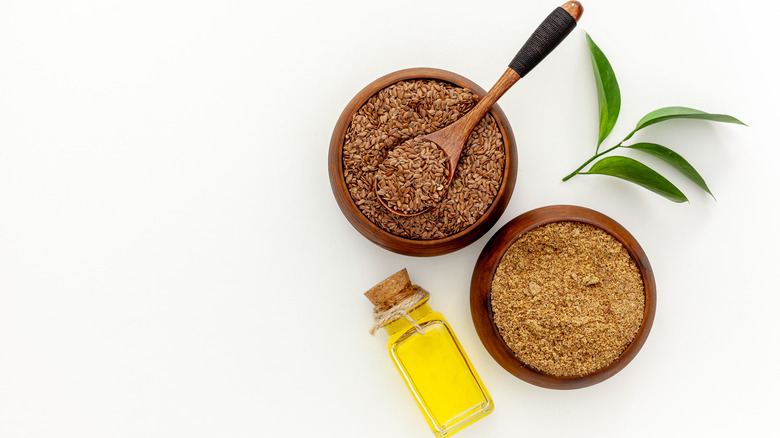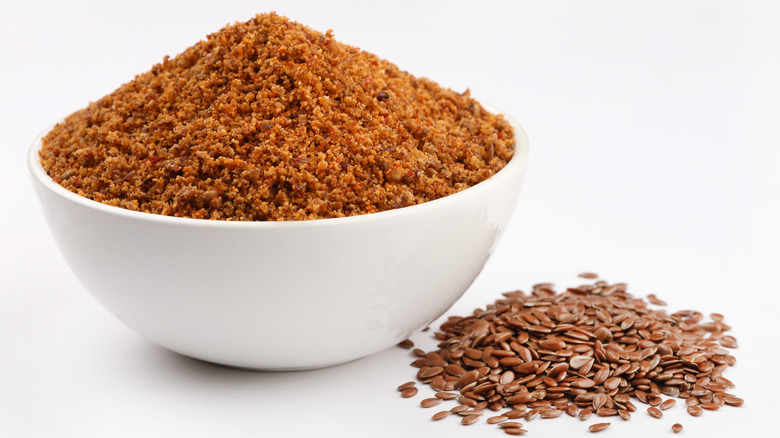Why You May Want To Avoid Flaxseed If You Take These Common Medications
Flaxseed is often celebrated for its myriad health benefits (via Mayo Clinic). It's known for its ability to improve digestion, fight diabetes, reduce blood pressure, and prevent heart disease. The plant-based food is rich in antioxidants (via Frontiers in Nutrition). A single serving alone supplies an ample dose of fiber, alpha-linolenic acid, and omega-3 fatty acids.
The health-promoting properties of flaxseed are often associated with its high content of phytochemicals, such as lignans, notes Hormones & Balance. These are naturally occurring plant micronutrients that improve health in a wide spectrum of ways. Lignans, in particular, may bring down the risk of heart disease, osteoporosis, and breast cancer, according to a 2019 study published in Molecules.
Some researchers have suggested that lignans mimic estrogen, the body's female hormone (via Mount Sinai). For this reason, flaxseed could help ease menopausal symptoms, such as hot flashes and mood disturbances. But it may be problematic for pregnant or breastfeeding women or men at risk of prostate cancer.
On the other hand, some studies have found that lignans exert anti-estrogen effects, which may help slow down the risk of certain types of cancer, per Frontiers in Nutrition. Numerous studies have lauded flaxseed for its anti-tumor properties, particularly among postmenopausal women at risk of breast cancer.
Flaxseed is essentially a herbal "adaptogen," explains Hormones & Balance. This means that it can either increase or block estrogen activity, depending on the amount of natural estrogens that are circulating throughout a woman's body.
Flaxseed's possible interactions with medications
Flaxseed's versatile and adaptive nature is a big part of what makes it so therapeutic and special, per Hormones & Balance. However, given that the wonder food may exert certain effects on the body, it's important to pay attention to the medications that you are taking while consuming it (via Mayo Clinic).
Flaxseed may interfere with estrogen-containing drugs such as birth control pills and hormone replacement therapy, reports Mayo Clinic. Adding flaxseed or flaxseed oil to your diet can cause these medications to be less effective by preventing your body from absorbing the hormones in them (via Hers).
Flaxseed may also slow down blood clotting by causing blood platelets to be less sticky, per Livestrong. As a result, it may alter the effects of anticoagulants and antiplatelet drugs.
In a 2015 study published in The Journal of Nutrition, it was also found to slightly lower blood pressure. This means it could interfere with medications and supplements that bring down blood pressure.
Flaxseed's ability to help control and reduce blood sugar levels might also mean that it could compete with diabetes drugs, per Mayo Clinic.
More research is undoubtedly needed to understand the impact of flaxseed on your hormonal health and well-being (via RxList). In the meantime, be mindful of your flaxseed consumption if you're taking medications that alter your hormones or are struggling with a hormone-sensitive condition such as endometriosis.


